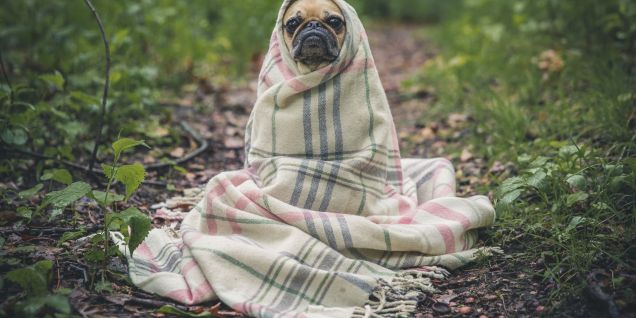Five Best Ways to Keep Your Pet Secure In Any Weather


Table Of Content
Pets are part of the family, and we all want to keep them safe and secure. Pets shower us with affection, and we reciprocate. Being a pet parent comes with a lot of responsibilities. It is our responsibility to keep them safe in any weather condition
Summer may be uncomfortable, if not deadly, for both pets and people. It's difficult enough to manage with rising temperatures, much alone dense humidity, but things get even more difficult in areas afflicted by both high heat and storm-related power outages, which can have tragic consequences.
During the colder months, you must offer a safe and healthy environment for your dogs. When it snows, the landscape changes. You and your pet have no idea what horrors lurk beneath the snow.
Provide proper expert care to your pet by using Canada pet care coupon codes. The experts will examine your pet and let you know if your pet needs special care.
Here are five tips for keeping your pet safe in any season:

Heatstroke can be caused by extreme temperatures. Heavy panting, glazed eyes, a racing pulse, difficulty breathing, extreme thirst, lethargy, fever, disorientation, loss of coordination, profuse salivation, vomiting, a deep red or purple tongue, seizure, and unconsciousness are some of the symptoms of heatstroke.
Heatstroke is more likely in animals who are extremely old, very young, overweight, have not been conditioned to continuous exercise, or have heart or respiratory illness. In excessive heat, some dog breeds, such as boxers, pugs, Shih Tzus, and other dogs and cats with short muzzles will have a significantly harder time breathing.

In the case of an earthquake or other natural disaster, it's a good idea to take your pets with you. Even if there is no evacuation and shelters are not open, pets can become lost in the chaos or injured. If you must evacuate but cannot bring your pets along, consider leaving food and water for them at home.
Blizzards and power outages, for example, can leave you trapped or render your home uninhabitable. Make a disaster kit with items for your pet and have it on hand. Pack at least three days' worth of pet supplies, including:

In the winter, it's important to provide a warm bed and shelter for your pet. The best type of shelter is one that can be placed in an area where they can't burrow under snow or dig into the ground. A good example is a plastic tent with holes cut out for ventilation. You can also use wood or cardboard to build a cozy den that keeps them warm but doesn't trap them inside. If you have an outdoor cat, make sure their bed is elevated slightly. So it isn't covered by snow—you don't want your furry friend to freeze!
Pets should only go outside for toilet breaks and short play sessions when temperatures drop below freezing. Some breeds, such as Siberian huskies and Newfoundlands, have thick coats and are more cold-tolerant, although they can still acquire cold-related illnesses. Always bring your pet inside after a toilet break, and never keep him outside for extended amounts of time.

If your pet is an outdoor pet, they'll need a dry, draft-free shelter that's big enough to sit in but tiny enough to keep body heat in. The floor should be raised off the ground by a few inches and covered with cedar shavings or straw. The doorway should be covered with waterproof burlap or heavy plastic, and the home should be turned away from the wind. Small livestock, such as sheep and goats, should follow these standards. Rabbits raised in outdoor hutches also require wind protection and should be given a nesting box and additional straw or shavings bedding.

When the weather takes a turn for the worse, your pets may be at risk of getting lost or injured. It's important to keep them safe and secure during extreme conditions and make sure they have what they need before you go out.
Provide shelter for outdoor pets. If your dog has access to an outdoor shelter, make sure that it's secure from all sides so it can't blow away or get damaged by rain or snow. If there are no structures available for your pet, bring in a thick blanket that he can lie on or underneath if he needs warmth.
Use a weather alert radio, and make sure to update your pet when the weather changes. If you have any questions, contact the police department or animal shelter in your area for more details.
Popular
6 Affordable Makeup Organizers To Declutter Your Vanity
For the makeup lovers! Here are the best 6 Affordable Makeup Organizers To Declutter Your Vanity.
Look at the Stunning Debut of Alia Bhatt at the Met Gala 2023
Alia Bhatt Met Gala 2023 debut was a huge success, and she certainly made a mark with her stunning look. Now grab for more details here!
Crunches Vs. Sit-Ups: Which One Is Best For Your Abs?
Exercises that burn fat can help you lose weight .If you want to know Crunches Vs. Sit-ups: Which one is best for your Abs read below
Black Seed Oil Benefits For Hair and Skin
Black seed oil offers a wide range of benefits for hair and skin. Now get more information about black seed oil visit the blog!
